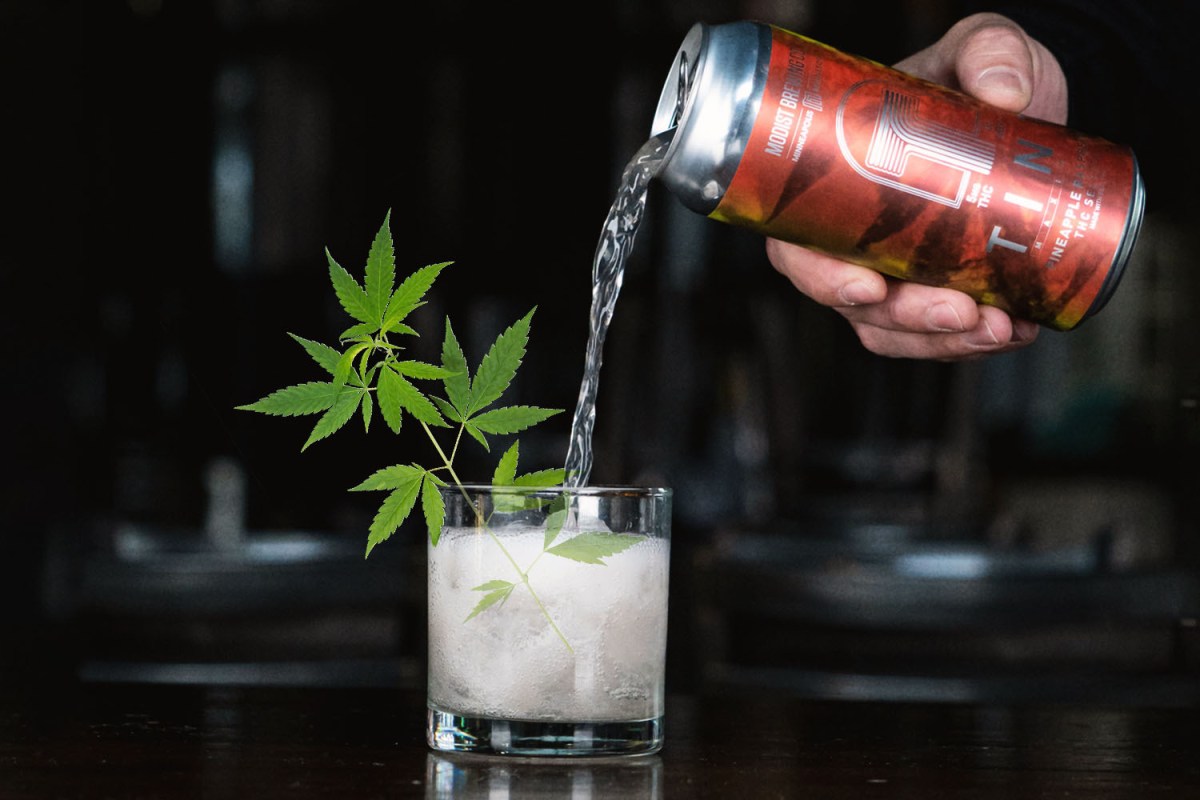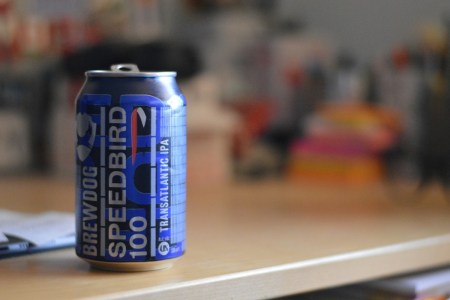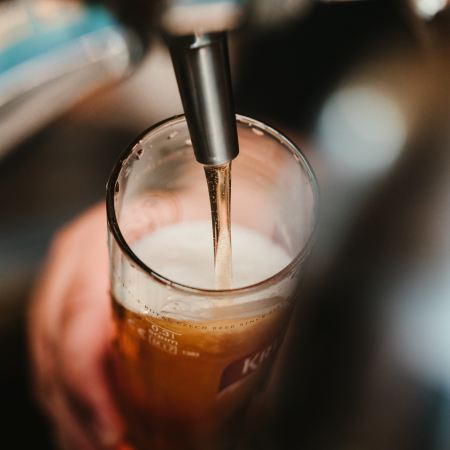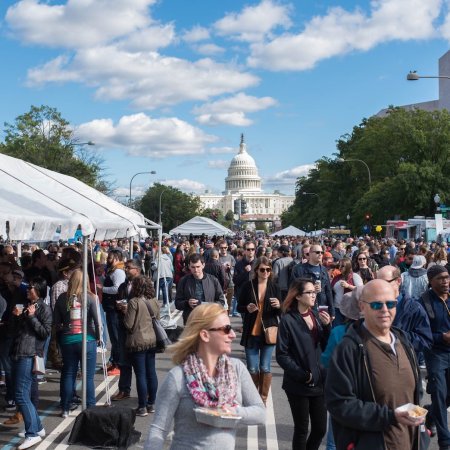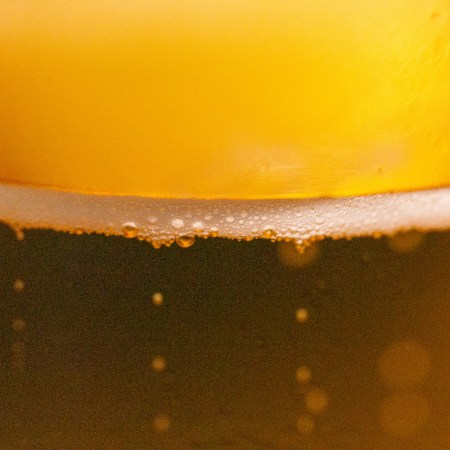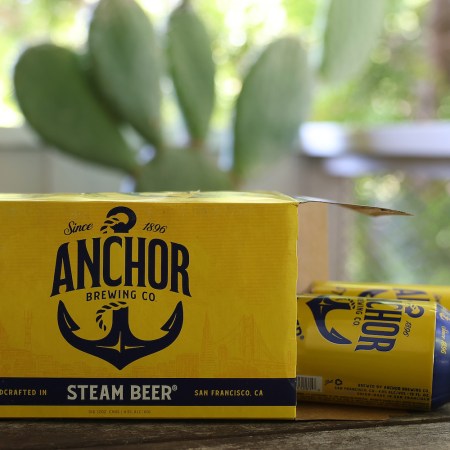“It’s showtime!”
Raul Julia’s voice erupts from the Addams Family pinball machine, cutting through the din at TLT Pinball Bar. It’s league night at the Minneapolis bar. It’s packed. Godzilla’s shriek mingles with Ghostbusters catchphrases and laughter at the bar. What stands out — especially if you’re from out of state — is the shocking number of players sipping THC Seltzers, most made by local breweries.
While marijuana is still not legal in the state, Minnesota legalized the recreational use of low-dose THC edibles in 2022. It was a strange process that prompted some to ask if Minnesota “accidentally” legalized weed. That “accident” has been a boon for the state’s breweries.
How Minnesota opened a weed leaf-sized loophole
The 2022 provisional law loosened regulations despite the then-GOP-controlled Senate’s objections. Republican Senator Jim Abeler told the Star Tribune at the time that he thought the law in question was designed to regulate the Delta-8 THC market — products made from this less potent strain of THC were already being sold in Minnesota — but didn’t realize the law would simultaneously legalize edibles containing more potent Delta-9 THC. The paper reported that it was “unclear” if Republicans actually knew what the result of this provision might be.
And while the new law didn’t necessarily open the floodgates, there was plenty of room for new products to trickle into the marketplace — even though the specifications on what can be sold were still narrow. Edibles can only contain hemp-derived Delta-9 THC with a maximum of 5mg of THC per serving and 50mg per package. Though workarounds have been discovered, most notably by Minnesota producers of THC seltzers. Lupulin Brewing’s website says its 12mg Smazey THC seltzer has “four 3mg servings per can.” It approaches that 50mg limit in a four-pack of cans.
The 5mg serving is considered “low dose,” but brewers say they tell customers that a 5mg dose will get the consumer high, particularly if they are a new or light user of marijuana. Regular weed consumers say that a 5mg dose doesn’t do a whole lot. They require more to feel the desired effects. Nonetheless, “low dose” can feel like a misnomer for many since a can of THC seltzer with 10mg can be a lot for casual imbibers.
Easy to find…and easy to imbibe
One of the more unique details in Minnesota’s new market is that you can find THC edibles in places you won’t in other states. Edibles — including THC beverages — are sold at concert venues, restaurants, a non-alcoholic bottle shop in Minneapolis, tobacco stores and bars like TLT. Importantly, those regulations have also meant that the barrier to entry for businesses is lower than in other states, allowing small businesses like local breweries to dip their toes in those THC-infused waters.
The legalization may be limited to low-dose and hemp-derived products, but it has not been small business. TLT tells InsideHook that THC drinks accounted for 13% of bar revenue over the last month. Fair State Brewing Co-Op says Chill State THC seltzer has become the northeast Minneapolis brewery’s best-selling beverage. It also told Racket that THC drinks represented 45% of its taproom’s to-go revenue in October and November 2022.
Modist Brewing, also based in Minneapolis, tells InsideHook that 40% of its taproom sales are THC drinks, according to Andy Herzog, THC Brand Manager at Modist. Moreover, in municipalities where the sale of edibles is allowed, they have accounted for up to 40% of the brewery’s total sales at times. (A handful of cities, like Richfield, Minnesota, have put a moratorium on THC sales, so those figures do not include the limited areas where the sale of edibles is not permitted.)
Even the profits are getting high
The numbers vary, but it is nonetheless significant for breweries coming out of a few tough years around the pandemic. Craft brewing as a whole saw a 9% production decline in 2020, according to the Brewers Association, a not-for-profit trade group. That’s the first production decline in the modern era of craft beer, something which has been at least partially attributed to the pandemic. Those issues continued in 2021 and 2022 to a lesser extent as brewers contended with the ongoing pandemic, supply chain issues, and rising prices. Though, strong retail sales balanced out significant slowdowns in taproom and bar sales for some in the industry.
Despite the broader industry struggles, Herzog says THC didn’t save Modist from closing its doors. “Without THC, we would have wrapped 2022 a hair under where we wanted, but we set our goals ambitiously,” he says. “We have gone from doing fine to, wow, we can take on some other projects. We can get around to some other stuff that we’ve maybe been putting off.”
Modist says it looks at its growing THC sales as “gravy” on top of usual revenue, but others have said that THC beverages are more than gravy. Fair State CEO Evan Sallee has called it a “lifeline” and, speaking about legislation that would cut breweries out of future THC products, told the Star Tribune he wouldn’t be surprised if some breweries go out of business without these drinks.
“We actually just finished our brewhouse expansion,” Ryan Pitman, Owner and Brewer at Eastlake Craft Brewery says. “It’s all the same equipment that we can use to make the seltzers and the beers. So, it basically doubles our capacity at the exact right time.” He says that the expansion was planned before the THC gold rush, but that it helped the brewery push plans along as it sells THC seltzers — they deliver THC drinks to your door — just about as fast as it can make them.
Being able to make the drinks on the equipment already in place has made it a smooth transition for breweries. Though, having the equipment already in place may wind up being a problem for breweries in the not-too-distant future.
BrewDog's Sale Yields a New Owner — At Least for Part of It
The formerly independent company is coming under a larger umbrellaThe future is very hazy
It’s been a significant nine months of legalization for breweries, but they aren’t necessarily going all-in quite yet. The future of THC drinks in Minnesota is hazier than half the taps at your local brewery.
In November’s election, the Democratic-Farmer-Labor (DFL) party grabbed control of both chambers of the Minnesota Legislature while Governor Tim Walz secured reelection. Democrats have said one of its priority items will be marijuana legalization. Governor Walz even included funding for the proposed Cannabis Management Office, grants to assist individuals looking to enter the cannabis market, and “expungement of non-violent offenses involving cannabis” in a budget proposal.
Understandably, many believe it’s just a question of when Minnesota passes some form of recreational cannabis legislation rather than if it passes legislation. That “when,” according to Governor Walz, could be as soon as May.
Many Minnesota brewers hope that hemp-derived edibles and the loose oversight that came along for the ride provide a proof of concept for Minnesota’s regulations will be different than similar regulations in other states. Specifically, they hope there will be a seat at the table for them to continue making low-dose, hemp-derived drinks inside their current facilities.
In addition to the desire to be able to make and sell drinks on-premise, a concern for brewers is a requirement in the proposed legalization bill that states, “Cannabis manufacturing must take place on equipment that is used exclusively for the manufacture of cannabinoid products, creation of hemp concentrate, or creation of artificially derived cannabinoids.”
That won’t be possible for most breweries. “We don’t have the space for separate equipment,” Pitman says. “The canning line itself was $35,000. So, buying a second one of those is pretty much impossible.”
It has been not even a year, but brewers already see the long-term benefits of being in a marketplace that has been effectively closed to breweries in other states. “I think our main concern is having a lane, understanding the width of that lane in the broader context of a new legal state,” Herzog says. “There are advantages and disadvantages to the way we’ve rolled out legalization here with this wild west year or so we will wind up having in between Delta-9 [and broader legalization] and how vague that’s been to this point. I don’t know that anywhere else that has legalized full recreational adult use has had this kind of soft rollout that opens up a vacuum for established businesses already operating in the food and beverage space to jump in and, on these terms, be participants.”
The plan for most breweries would remain the same, even if marijuana was legalized for recreational use. “When you get into the weeds on it, we’re looking to stay within the hemp-derived space,” Herzog says. He explains that hemp is legal on a federal level, but marijuana remains illegal. Selling marijuana-derived THC products would force the company to give up its 280 tax exemption on a federal level, preventing them from taking tax exemptions.
Businesses also risk losing relationships with larger banks and credit card companies if they sell marijuana due to its federal status. (Though, not all banks refuse to work with marijuana-related businesses.) Even under current rules in Minnesota, with only hemp-derived edibles available, Eastlake says one credit card processor dropped them for selling THC products. However, another stepped up and was willing to handle transactions that included the sale of THC products. Insurance has similarly been an obstacle at bars and breweries. “Our insurance dropped us,” Pitman says, “but we were able to find another one that beat their price by like 40 bucks a year anyway.” Selling hemp-derived edibles has complications, but the breweries have largely been able to navigate the new challenges.
“We want to make sure there is a lane to operate in, but [we are] happy to stay within it as far as making what we know, which is high quality flavor-first experience-first beverages,” Herzog says.
Despite the uncertainty around the future, some breweries have pushed forward, investing in the blossoming THC side of their businesses. Modist created the role of a THC Brand Manager, for example. In Northeast Minneapolis, Fair State launched the THC-focused Chill State Collective, which will co-pack, store, and distribute THC drinks in Minnesota. Chill State currently works on THC drinks for Bent Paddle (a Duluth-based brewery), Find Wunder, Happi, Offfield, and Plift, the latter of which has been vocal about the need for equity in the proposed legislation.
With so much uncertainty, the only thing that breweries seem to know is that the situation will soon change. One thing, however, is clear. Breweries have been thrust into a unique position in Minnesota, and they feel the results have been positive. Imbibers have voiced their agreement by making the drinks immensely popular. It’s just not clear if that distinctive situation in Minnesota will continue. Have breweries managed to establish popular brands in advance of broader cannabis legalization or will this wind up as a short-lived gold rush? The breweries talked to for this piece are optimistic that it’ll be the former.
Every Thursday, our resident experts see to it that you’re up to date on the latest from the world of drinks. Trend reports, bottle reviews, cocktail recipes and more. Sign up for THE SPILL now.
